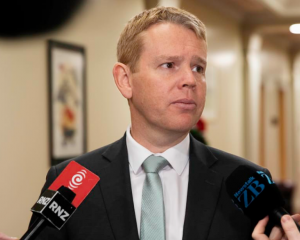
The extent of this group is yet to emerge. There is likely to be a sizeable “hesitant” number, while also a core of straight-out refusals.
New Zealanders, as a whole, must be wishing the hesitant size shrinks and the refusal core is small.
The Pfizer vaccine being administered in this country has now been used successfully around the world many, many millions of times with minimal side effects.
The Government has been sensible not to make vaccination compulsory because that would feed the conspiracy theories and the paranoia.
It would play into fears of government over-reach and the destruction of individual rights.
Nonetheless, there could well be serious consequences for those who reject inoculation.
Overseas travel could become impossible, and many roles and jobs might also necessitate vaccination.
The focus recently was on New Zealand’s Defence Force.
It is here that compulsion is justified and necessary.
Chief of Defence Force Air Marshal Kevin Short has been as blunt as he can be.
About 180 staff, about 1.8% of uniformed personnel, have declined the first jab so far.
Air M Short said every service person had the right to decline vaccination but there would be consequences.
There would be one-on-one discussions with medical specialists to discuss their concerns. Decisions would be made on a case-by-case basis but “they may have their employment terminated”.
Fair enough. The Defence Force, through rotation, is working at MIQ hotels to protect New Zealand’s borders.
As Air M Short said, vaccinated personnel also needed to be available for tasks such as short-notice domestic and international deployments, for example, humanitarian and disaster relief in the Pacific.
The counter view, expressed anonymously by one employee, is that staff are still entitled to fundamental human rights and should be able to refuse “medical treatment”.
Numbers were so small that there would be roles outside MIQ or overseas for the unvaccinated.
But a standard list of inoculations, including typhoid, tetanus and measles, is already required before someone can even join the Defence Force. It is reasonable that one more be added to the list, even if it comes after enlisting.
The Defence Force is in a stronger position than most employers because it is not subject to the Employment Relations Act.
As explained in the Employment Law column by John Farrow in Monday’s edition of the Otago Daily Times, matters are less clear on whether employers can insist employees be vaccinated.
While the Bill of Rights Act allows New Zealanders the right to refuse medical treatment, there are also strong obligations on employers to ensure, as far as is reasonably practicable, the health and safety of employees and others who might be affected by those workers.
Mr Farrow raised several issues. One concerns where the science will finally fall on how much vaccination affects transmission of Covid-19 and therefore the health and safety danger from employees to other workers and the public.
He noted preconditions can be set for new staff, including vaccination.
However, caution under the Human Rights Act might be required because of the risk of discrimination on the basis of a religious or ethical belief or medical condition.
As the global pandemic continues to rage and as the New Zealand Pfizer roll-out gathers pace, employers, employees and all the people of New Zealand will be making vaccination decisions.
Hopefully, the vast majority of citizens will agree to be inoculated — most even enthusiastically — and New Zealand can remain a safer place.










